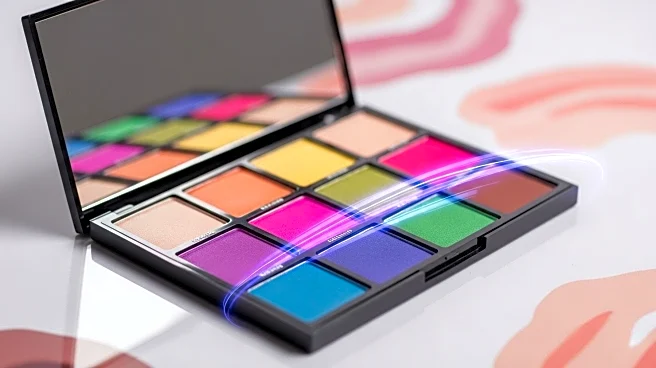What is the story about?
What's Happening?
Online beauty marketplaces are experiencing a resurgence, driven by platforms like Amazon, Walmart, and Ulta Beauty. These multivendor platforms are capitalizing on the shift in consumer shopping habits, where speed and trend responsiveness are crucial. According to Vanessa Kuykendall, Market Defense's chief engagement officer, consumers are dictating their shopping preferences, prompting retailers to adapt quickly. Dime Beauty, initially a direct-to-consumer brand, expanded to Amazon and Ulta, observing significant consumer interest in fragrances. The brand's Amazon performance was notably boosted by a viral TikTok video, which increased search volume and ranking. This trend highlights the strong link between social media virality and marketplace success. Kuykendall also noted that brands can leverage marketplace data to engage with consumers, even if they haven't gone viral. The shift indicates that consumers prioritize brands over specific shopping channels, with Walmart's marketplace attracting a significant millennial audience.
Why It's Important?
The rise of online beauty marketplaces signifies a major shift in retail dynamics, emphasizing the importance of digital platforms in consumer engagement. This trend impacts traditional retail models, pushing them to integrate online strategies to remain competitive. The ability of brands to quickly respond to social media trends and consumer demands is crucial for success in this evolving landscape. Retailers like Walmart and Ulta are investing in their marketplaces to capture a broader audience, particularly millennials, who are key drivers of online shopping. This shift also empowers consumers, offering them more control over their shopping experiences and preferences. The beauty industry, in particular, benefits from this trend, as it allows for rapid adaptation to new trends and consumer needs, potentially leading to increased sales and brand loyalty.
What's Next?
As online beauty marketplaces continue to grow, traditional retailers may need to further integrate digital strategies to compete effectively. The focus will likely be on enhancing the consumer experience by offering a wider assortment of products and a premium shopping experience. Brands will need to harness data analytics to understand consumer behavior and preferences better, allowing them to tailor their offerings and marketing strategies. Additionally, the role of social media influencers in driving product popularity is expected to increase, prompting brands to engage more with these influencers to boost their visibility and sales. The ongoing evolution of consumer shopping habits will likely lead to further innovations in the retail sector, with technology playing a central role in shaping the future of shopping.
Beyond the Headlines
The transformation of beauty marketplaces also raises questions about the ethical implications of consumerism driven by social media trends. The pressure on consumers to keep up with trends can lead to increased consumption and waste. However, it also presents an opportunity for brands to promote sustainable practices and products. The beauty industry can leverage this shift to encourage responsible consumption and highlight the importance of self-care and empowerment through beauty products. As consumers become more conscious of their purchasing decisions, brands that align with these values may gain a competitive edge.
















